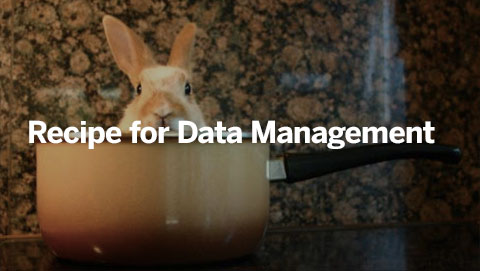Data Quality
What is Data Quality?
Data quality refers to the accuracy, reliability, consistency, and completeness of data. It is a measure of the extent to which data meets the requirements and expectations of users. The quality of data is of paramount importance to a data governance initiative.
Several factors contribute to data quality, including precision, consistency, timeliness, completeness, and reliability. High-quality data is essential for making informed decisions, conducting accurate analyses, and deriving meaningful insights.
Data quality is a critical aspect of any successful business strategy, as it directly impacts decision-making, analytics, and overall organizational effectiveness. It also directly impacts an enterprise’s AI strategy, as robust artificial intelligence requires high-quality data for effective adoption and accurate outcomes. An AI model trained on datasets with poor quality would lead to inaccurate outcomes, being a handicap towards reaching data & analytics goals.
Key components
- Accuracy:
Data accuracy ensures that information is correct and free from errors. Inaccurate data can lead to faulty analysis and decision-making.
- Completeness:
Complete data contains all the necessary information without any missing values. Incomplete data can result in incomplete insights and hinder the effectiveness of business processes.
- Consistency:
Consistent data maintains uniformity across various databases and systems, preventing conflicting information and confusion.
- Reliability
Reliable data is trustworthy and can be depended upon for making business decisions. Unreliable data may lead to skepticism among stakeholders and compromise the credibility of reports.
- Timeliness:
Timely data is up-to-date and relevant to the current business context. Outdated information can lead to misguided decisions and missed opportunities.
- Integrity:
Data integrity ensures the accuracy and reliability of relationships between data elements, maintaining consistency in how data is linked and interconnected.
- Uniqueness:
Uniqueness ensures that each data record is distinct and not duplicated within a dataset, preventing redundancy and ambiguity.
Why is it important?
High-quality data is crucial for informed decision-making, regulatory compliance, improved customer relationships, and enhanced operational efficiency in modern businesses. Here are a few benefits:
- Informed Decision-Making:
High-quality data ensures decision-makers have accurate and reliable information, leading to more informed and effective decisions.
- Regulatory Compliance:
Many industries have regulations and compliance standards regarding data accuracy and security. Ensuring data quality is essential for meeting these requirements.
- Improved Customer Relationships:
Accurate and complete customer data enables personalized interactions, improving customer satisfaction and loyalty.
- Enhanced Operational Efficiency:
Reliable data supports smooth business processes, reducing errors, delays, and operational inefficiencies.
Best Practices
In the pursuit of maintaining high-quality data, organizations often employ a range of strategic approaches to ensure the accuracy, reliability, and overall integrity of their data sets. Some of these include:
- Data Profiling:
Analyze and understand the characteristics of your data to identify anomalies, errors, and inconsistencies.
- Data Validation:
Implement validation checks to ensure that data entered into systems meets predefined criteria for accuracy and completeness.
- Data Governance:
Establish data governance policies and procedures to ensure consistent data quality standards across the organization.
- Data Quality Tools:
Utilize data quality tools and software to automate identifying and resolving data issues.
- Training and Awareness:
Train employees on the importance of data quality and create awareness to foster a data-driven culture within the organization.
FAQs
How does data quality impact business processes?
High-quality data ensures that business processes run smoothly, reducing errors, delays, and inefficiencies. Poor data quality can lead to incorrect decisions, operational disruptions, and financial losses.
What is the role of data governance in maintaining data quality?
Data governance involves setting policies and procedures to manage data quality consistently across an organization. It ensures that data is accurate, reliable, and compliant with regulatory standards.
Can data quality be automated?
Yes, many aspects of data quality can be automated using data quality tools, which can help in identifying, resolving, and preventing data issues. However, human oversight is still necessary for strategic decision-making and complex problem-solving.





